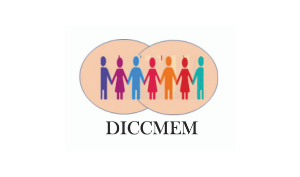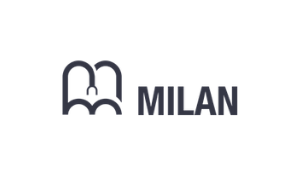Cooperation partnerships
Ongoing projects
Duration: 01/09/2024 – 31/08/2026
Erasmus+, Cooperation partnerships KA220
Leader: UNIVERSITY OF PIRAEUS RESEARCH CENTER (Grecja)
UNIMED – UNIONE DELLE UNIVERSITA DEL MEDITERRANEO (Włochy)
VELIKO TURNOVO UNIVERSITY ST CYRIL AND METHODIUS (Bułgaria)
POLITECHNIKA BIALOSTOCKA (Polska)
NEAPOLIS UNIVERSIT (Cypr)
ENOROS CONSULTING LIMITED (Cypr)
Total budget: 250 000,00EUR
BUT budget: 32 620 EUR
Project coordinator at BUT: dr Joanna Samul

The aim of the project is to develop a set of laboratory modules focused on training biomedical engineering students. Students will have the opportunity to participate in laboratory classes based on realistic scenarios, without having to go to hospital centers. The leader of the project is Universidad de la iglesia de deusto entidad religiosa (Spain). Partners: Białystok University of Technology, Ecola superieure des technologies industrielles avancees (France), Fundacion universidad Francisco de vitoria (Spain).
Project coordinator at BUT: prof. dr hab. inż. Jolanta Pauk
BUT budget: 40 963,00 EUR

2022-2-EE01-KA220-SCH-000101543
Duration: 2023 – 2025
Erasmus+, Cooperation partnerships KA220
Leader: Tallin University of Technology (Estonia)
1. Bialystok University of Technology, Bialystok (PL)
3. Associazione di Promozione Sociale KORA (Włochy)
5. Platon M.E.P.E. (Grecja)
6. Narva Gümnaasium (Estonia)
BUT budget: 250 000,00 EUR
Project coordinator at BUT: dr hab. inż. Katarzyna Halicka, prof. PB

Duration: 31.12.2022 – 30.06.2025
Erasmus+, Cooperation partnerships KA220
Leader: University of Aveiro (Portugal)
1. Advancis Business Services (Portugal)
2. Kaunas University of Technology (Lithuania)
3. Bialystok University of Technology (Poland)
4. Cyprus University of Technology (Cyprus)
5. University of Western Macedonia (Greece)
Total budget: 400 000,00EUR
BUT budget: 51 315,00 EUR
Coordinator at BUT: dr Urszula Ryciuk
Facebook: Game it Away! FB
Instagram: Game it Away! IG

Duration: 01.10.2023 – 30.09.2026
ERASMUS+ Lump Sum Grants
Leader: INSTITUT MINES-TELECOM (FR)
1. UNIVERSITATEA LUCIAN BLAGA DIN SIBIU (RO)
2. OMILAB GGMBH (DE)
3. UNIVERSITAT POLITECNICA DE VALENCIA (ES)
4. HOCHSCHULE BIELEFELD – UNIVERSITY OF APPLIED SCIENCES AND ARTS (DE)
5. POLITECHNIKA BIALOSTOCKA (PL)
6. UNIVERSITA’ DEGLI STUDI DI BERGAMO (IT)
7. FEDERACION EMPRESARIAL DE AGROALIMENTACION DE LA COMUNIDAD VALENCIANA (ES)
8. MARQUARDT SCHALTSYSTEME SCS (RO)
9. CENTRUM PROMOCJI INNOWACJI I ROZWOJU (PL)
10. AESIO SANTE (FR)
11. RECONNAITRE – OPEN RECOGNITION ALLIANCE (FR)
12. BOC INFORMATION TECHNOLOGIES CONSULTING SP. Z.O.O.
15. Jeonbuk National University Industry-Academic Cooperation Foundation (KR)
16. HOCHSCHULE BIELEFELD – UNIVERSITY OF APPLIED SCIENCES AND ARTS (DE)
Total budget: 1 499 984,00 EUR
BUT budget: 100 003,00 EUR
Coordinator at BUT: dr hab inż. Arkadiusz Jurczuk, prof. PB

Envisioning sustainable futures in higher education business departments, inspired by Permaculture design principles (PermaLABS)
Duration: 01.11.2023 – 30.10.2026
Erasmus+, KA220-HED – Cooperation partnerships in higher education
Leader: Erasmus Universiteit Rotterdam (Holandia)
Partners:
- Stimmuli for Social Change (Grecja)
- Aristotelio Panepistimio Thessalonikis (Grecja)
- Politechnika Białostocka
- Sveuciliste u Zagrebu (Chorwacja)
- FCiencias.ID – Associacao para a Investigacao e Desenvolvimen to de Ciencias (Portugalia)
Project budget: 400 000,00EUR
BUT budget: 48 000,00 EUR
Coordinator at BUT: dr Aleksandra Gulc
Duration: 01.09.2024 – 31.08.2027
ERASMUS+ KA2 Partnerstwa strategiczne
Leader: Politechnika Białostocka
Partners:
- Haaga-Helia University of Applied Sciences (Finladia)
- Karlsruhe Institute of Technology KIT (Niemcy)
- Babes Bolyai University (Rumunia)
- ValueDo (Włochy)
Total budget: 400 000,00 EUR
Coordinator at BUT: prof. dr hab. inż. Joanna Ejdys

Duration: 01.09.2024 – 31.01.2027
ERASMUS+ KA2 Partnerstwa strategiczne
Leader: Politechnika Białostocka
Partners:
- Technical University of Crete (Grecja)
- West University of Timisoara (Rumunia)
- Polytechnic Institute of Viseu (Portugalia)
Total budget: 250 000,00 EUR
Coordinator at BUT: dr hab. Dorota Mozyrska, prof. PB

Duration: 01.11.2024 – 31.10.2025
ERASMUS+ KA2 Partnerstwa strategiczne
Leader: CENTRALESUPELEC (Francja)
Partners:
- Politechnika Białostocka (Polska)
- LVIV POLYTECHNIC NATIONAL UNIVERSITY (Ukraina)
- UNIVERZITET U NISU (Serbia)
Total budget: 120 000,00 EUR
BUT budget: 29 978,00 EUR
Coordinator at BUT: dr inż. Jarosław Forenc
Completed projects

ICT_EDUPAND – Holistic approach towards problem-based ICT education based on international cooperation in pandemic conditionsProject duration: 01.06.2021-31.05.2023
Project budget: 234 700,00 EUR
Project website: ictedupand.pb.edu.pl
Contact: ictedupand [at] pb.edu.pl
The project aims to address the needs of adapting teaching and assessment methods to pandemic conditions, but also adapting the education system to the 21st century (or knowledge-society) needs and state-of-the art pedagogical research. This general objective will be achieved by applying the holistic approach through mutual transnational cooperation among four university partners from Poland (Bialystok University of Technology), Norway (Norwegian University of Science and Technology), Serbia (University of Niš) and Bulgaria (University of Ruse „Angel Kanchev”), and a number of additional industrial partners. The basic innovation lies in the holistic approach covering the set of the activities: novel teaching methodology, elaboration of new courses programmes, edition of digital materials (manuals, reports, problems, exercises, tests, etc.), writing textbooks and training of academic teachers to involve them in this new teaching way.
The following results will be achieved during the project implementation:
- The innovative problem-based methodology under pandemic conditions will be developed and will be supported by appropriate digital presentations.
- Digital resources will be created in educating teachers for acquiring new skills related to the problem-based methodology. Detailed schedules, presentations and recorded movies will be accessed at the project website.
- Digital teaching resources will be created in selected areas of ICT applicable for a group of problem-based courses. At least eight courses will be modernized. The introduction-to-lecture movies, interactive lecture presentations, project statements, lab exercises and online exam tests will be created.
- At least three multimedia books will be prepared with the aim to enable students to follow online lectures and prepare exams under pandemic conditions. A collection of students’ lab projects sharing best practices within partner universities will be edited.

ADD-ON_SKILLS – Advanced Digital Design course ON modern buildings developing SKILLS for young engineersProject duration: 01.06.2021-31.05.2023
Project budget: 261 018,00 EUR
Project website: addonskills.pb.edu.pl
Contact: addonskills [at] pb.edu.pl
ADD_ON_SKILLS project responds to an increasing need for taking up new challenges in digital and remote times, that set the bar high for teachers and trainers in technical universities. Thus, they need not only to follow quick-changes in the construction sector, but also face the prospect of remote or hybrid learning. Preliminary research about the competences of graduates of technical universities as well as results of analysis of our previous Erasmus+ project, showed inability to conduct comprehensive analysis taking into account different aspects and technical solutions to create the best energy-effective and ecology-friendly solution. The analysis of the previous project in this area showed a gap to be filled, thus, we decided to face the challenge. Moreover the pandemic situation made students stay home or conduct blended learning, that raised requirements to educators.
To achieve the aim of the project a cohesive consortium with active involvement of 5 HEIs and one association of engineers has been established. All partners understand inevitability of changes in the education system and have wide experience in different areas related to designing low energy and eco-friendly buildings for sustainable cities. Common work of our teachers, their participation in an international short training, project meetings will enable the exchange of knowledge about designing and workmanship of modern, smart buildings using eco-friendly solutions. It will also contribute to the creation of a long-lasting network of cooperation in the didactic and scientific field. We will create an innovative learning module for blended mobility course, taking into account that the full course could be done remotely if necessary. We will develop at least 4 e-labs that will provide remote access to the equipment or will allow to simulate operation of systems depending on external variables to replace typical labs on site. Our ideas, tools and methods will be tested on two groups of students working in international and interdisciplinary teams.

E-Coach – Towards e-coaching, the first step to build trust with a digital coachProject duration: 01.03.2021 – 28.02.2023
Project budget: 254 729,00 EUR
The project will be implemented by the Faculty of Computer Science (BUT) with Universitaet Leipzig (Germany), Polytechneio Kritis (Greece) and Tampereen Ammattikorkeakoulu oy Finland (Finland).
Activities of the project include the creation of an innovative teaching method E-Coach, the preparation of courses on e-learning platform for academic teachers and students, as well as the preparation of sample courses implemented on the basis of the developed educational method. There will be three training events in which partners will share their knowledge and test the developed solutions.


FUTURES – Future laboratories for professional and personal developmentProject duration: 01.09.2020-31.08.2023Project budget: 398 173,00 EUR
Project website: futuresproject.pb.edu.pl
The project emphasizes the importance of high-quality adaptation skills as the means to support individuals in acquiring and developing key competences. A major part of these transversal competences and “soft skills” is the development of integrated and innovative ways of supporting personal development, resilience, adaptation, and critical thinking. As Futures Literacy (FL) increases individuals’ capacity to ‘use the future(s)’ to explore the present, the project aims to adopt such methodology also to foster professional development. In particular, the project underlines the need to develop skills of young people, for anticipating and promptly reacting to scenario changes, and imagining professional career paths.
The current global pandemic highlights precisely the importance of futures thinking, developing foresight and preparedness, but also an ability to embrace emergence, adapting to unforeseen circumstances that might impact participants’ professional lives.
Within the FUTURES project, we aim to develop the innovative, future-oriented processes, tools, and methods that will foster personal and professional development among European University Students, Early Stage Researchers and High School Students, including also those that aspire to enroll in University. The training materials developed in the project will empower individuals to realize that their images about the future (anticipatory assumptions) have a significant bearing on (limit or open up) their actions and choices today.
The project will serve to reach the following results:
- Design principles for a Future-oriented Training Programme (Intellectual Output 1);
- Foresight Toolbox and Training Manual for improving University Students and Early Stage Researchers future-oriented competences for personal and professional development (Intellectual Output 2);
- Foresight Toolbox and Training Manual for improving High School Students future-oriented competences for personal and professional development (Intellectual Output 3).

GLOCAL- Innovative training of future engineers responding to problems of contemporary cities Project duration: 01.09.2019 – 31.12.2022
Project budget: 300 860,00 EUR
Agreement: 2019-1-PL01-KA203-065654
Project website: glocal.pb.edu.pl
Contact: glocal [at] pb.edu.pl
GLOCAL is a project that shows future engineers how to think globally and act locally.
It responds to the current needs of the European labor market and it pays attention on the standard of living in cities, expectations addressed to the engineering industry, the availability of ITC technology and mobility’s needs. Engineers working in the broadly understood architectural, construction and civil engineering industry must demonstrate the skills of creative action and cooperation in interdisciplinary and international teams of designers and contractors. A consortium of 3 European universities will carry out the main objective of the project. The academic staff will improve its skills in a modern education as well as exchange of interdisciplinary knowledge and establishing scientific contacts, during three short training sessions.

The FoF-Designer: Digital Disign Skills for Factories of the FutureProject duration: 01.01.2019 – 31.12.2021
Project budget: 999 259,00 EUR
Agreement: 2018-2553/001-001
Project website: digifof.eu
The DIGIFOF project proposed a network of training environments where HEIs, enterprises and training insitutions come together to develop skill profiles, training concepts as well as materials for design aspects of the Factory of the Future (FoF). It created an organizational structure to foster knowledge transfer between industry and academia, aiming to provide educational and experimental OMiLAB4FoF laboratories, where FoF-aspects can be taught practically or experimented with. These were equipped with modelling, simulation and analysis tools targeting: strategic aspects of FoF (innovative business models, product-service systems, design thinking, crowd-production), process aspects (business process management, enterprise architecture management, product-lifecycle-management) and systems aspects (digital factory, product design, CPS and embedded intelligence, security and safety management).
Consortium:
- University Lucian Blaga Sibiu, Romania (Leader)
- Bialystok University of Technology, Poland
- Ecole Nationale Supérieure des Mines de Saint Etienne (EMSE), Francce
- University of Bergamo, Italy
- University of Oulu, Finland
- BOC Information Technologies Consulting Sp. z o.o., Poland
- Continental Automotive Systems SRL, Romania
- CLEXTRAL, France
- ViaMéca, France
- International Centre for Resources and Innovation for Sustainable Development, France
- Associazione Fabbrica Intelligente Lombardia, Italy
- Centrum Promocji Innowacji i Rozwoju, Poland
- Cluster Metal Manufacturing Transilvania, Romania
- OMiLAB gGmbH, Germany
- Society of Collaborative Networks, Portugal

DICCMEM – Development and Introduction of a Communication Competencies Model for Enhancing and Maintaining a Business Mentor Network Project duration: 01.10.2019 – 30.09.2021
Project budget: 94 400,00 EUR
The expected results of the project focus on achieving the objectives of Priority 7 of the Smart Specialization Strategy (Latvia) or RIS3: identification of the existing resources of territories and their specialization, proposing prospective economic development opportunities and directions, int. al. leading and prospective business directions in the municipal territories. According to the NACE Rev. 2classification of economic activities, it corresponds to Section J: Information and communication.
The aim of the project was to examine barriers to communication competencies between mentors and mentees and propose solutions how to enhance and maintain the business mentor network by means of communication technologies. The project was interdisciplinary because, according to the OECD classification, it directly relates to such fields of science as economics, entrepreneurship, communication as well as information technology. The project involved the following research studies: a technical and economic feasibility study and an industry research study.
Leader: jest: Rezeknes Tehnologiju Akademija, Latvia
Partners: są:
- Politechnika Bialostocka, Poland
- Utenos kolegija, Lithuania
- Burgaski Svoboden Universitet, Bulgaria
- Ecoistituto del Friuli Venezia Giulia, Italy
- Latvijas Lauku Konsultaciju Un Izglitibas Centers, Latvia

Milan-Multifunctional Innovative Learning Assisting Network for VET in Advanced ManufacturingProject duration: 01.11.2018 – 31.10.2021
Project budget: 348 444,00 EUR
Project website: milan-project.eu
The main goal of the MILAN project was the elaboration of an innovative training course in the field of Virtual Reality and Augmented Reality usage in the education of Robotics and Automation.
Project activities were oriented to elaboration high-quality, open and innovative training materials and tools in the field of Robotics and Automation with the support of Virtual Reality and Augmented Reality. All developed MILAN training materials are installed on an interactive e-learning platform. This web-based platform allows the new quality of training oriented on identified needs of the target groups representatives, in the field of Advanced Manufacturing. The MILAN training system contains online e-learning course, lessons for mobile devices, interactive exercises and movies available either for PC, tablets, and smartphones. MILAN results use modern ICT solutions, including Virtual and Augmented Reality. All the training systems are implemented on a special, dedicated Multifunctional Educational-training ICT platform.

The e-MentEdu project aims to design and develop new professional qualifications to support lifelong learning. The partners will implement the e-mentoring educational package by personalizing the learning path in an online environment. The project leader is Rezekne Academy of Technologies (Latvia). Partners: Białystok University of Technology, Burgas Free University (Bulgaria), Ecoistituto del Friuli Venezia Giulia (Italy), Jekabpils Agrobusiness College (Latvia), A & A Emphasys Interactive Solutions Ltd, (Cyprus).
Project coordinator at BUT dr hab. Ewa Glińska, prof. PB
Project budget at BUT 19 605,00 EUR

DIGITAL YOUTH LIFE HEALTH PLATFORM
Project number: 2021-2-TR01-KA220-YOU-000049540
Project type: Erasmus+, Cooperation partnerships in youth – KA220-YOU
Coordinator: ANKARA YILDIRIM BEYAZIT UNIVERSITESI
Partners:
1. Bialystok University of Technology, Bialystok (PL)
2. RESHA (BE)
3. DGH AR-GE YAZILIM DANIŞMANLIK ENERJİ EĞİTİM İNŞ. SAN.TİC. LTD. ŞTİ. (TR)
4. Digital Robotic Life (TR)
Project budget at BUT: 45 035,00 EUR
Project coordinator at BUT: dr hab. inż. Arkadiusz Mystkowski, prof. PB
Project webpage: Erasmus+ Project DYL-HP
The aim of the project “DYL-HP” (Digital Platform of Youth Health) is to develop a digital platform constituting a virtual environment for users/patients enabling virtual video medical visits, live consultations with specialist doctors, remote meetings with yoga, pilates and fitness trainers, consultations with trainers and nutritionists, personalized training programs, online sports exercises, sports and medical guides. The target groups of platform users are: students, doctoral students, schoolchildren, specialist doctors, trainers, nutritionists, physical education teachers, etc.
In particular, the platform will be equipped with an advanced human-machine interface, in which artificial intelligence algorithms based on neural networks and deep machine learning will be able to recognize, identify and personalize selected characteristics of users/patients and thus support the work of doctors and trainers.
The second part of the application will perform teleoperation tasks with the use of haptic devices and remotely controlled manipulators to conduct operations/procedures.
Ultimately, the platform is to operate both as a mobile application (Android and iOS operating systems) and as a web application on popular browsers (Opera, Microsoft Edge, Google Chrome, Mozilla Firefox).
The platform will be developed by centers in Poland, Belgium and Turkey and is to be freely available worldwide.
